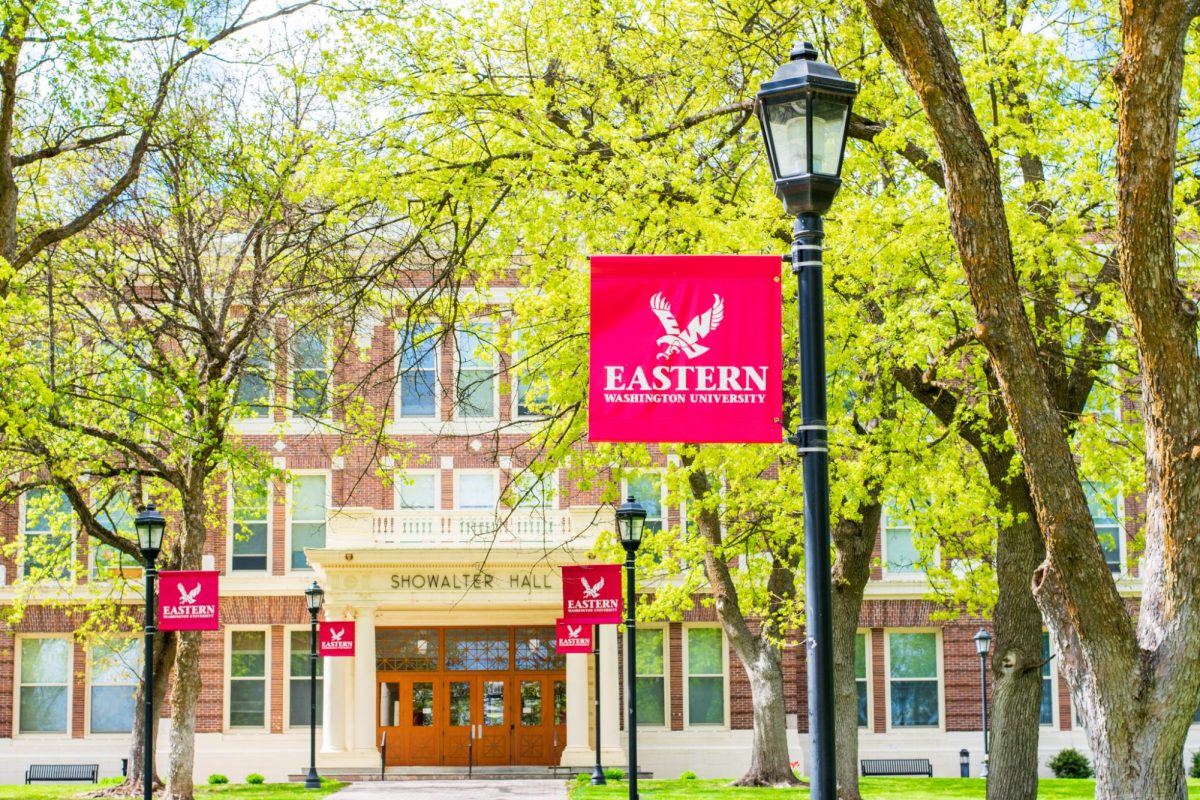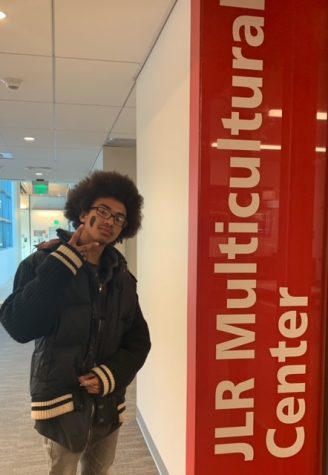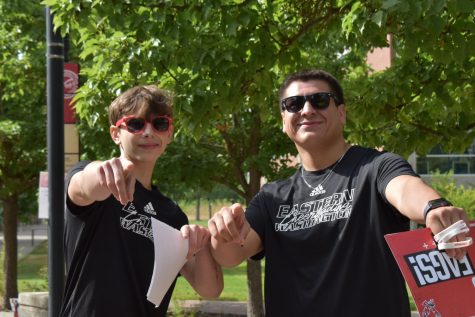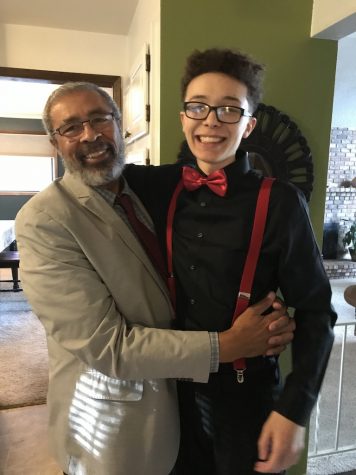Greek organizations support academics
February 13, 2015
Freshman at Eastern should join Greek organizations to set themselves up best for academic success.
I fear for freshmen who come here unknowingly unprepared for the academic and social demands on campus. Doing poorly in classes and receiving low grades can result in less marketability for financial aid resources. Fraternities and sororities offer unique academic resources for young college students.
My freshman year of college I attended community college, which is also called junior college. It’s called this for a reason, it’s a step between high school and a four-year university. I was successful at community college because it acted as that half step, preparing me for life at Eastern.
My close friend ended up going straight to Cornell University after graduating from high school. Her freshman year is now full of regrets: Poor decisions leading to terrible grades, which in turn lead to a low GPA she has tried improving ever since.
Just as my friend wasted her first year at college and inhibited her future academic GPA from being acknowledgeable, I worry about the campus’ freshmen. All Greek chapters on campus have a minimum cumulative GPA to join their house, then another quarterly minimum requirement GPA to maintain membership. Once a freshman joins a chapter, they are held accountable for their academics and are pointed toward resources within the organization and on campus.
Sigma Phi Epsilon fraternity is recognized by their national headquarters as a Residential Learning Community (RLC); this title is a long process to apply for and earn. It means the Washington Gamma chapter has structured itself around building a more influential living-learning environment for its members. SigEp strives to be a partner in higher education, partnering with the university to better its members, the campus and the Cheney community.
The SigEp Washington Gamma chapter has over 50 active members, each holding majors across the spectrum at Eastern. As a SigEp, I know I can go to the other visual communication design majors and minors for help on homework, questions about projects and advice about classes and professors.
Of the 50 SigEp men, it’s more than likely that one of them has taken a General Education Core Requirement (GECR) course that a freshman must take. With such a larger membership in the chapter, there are more opportunities for help and collaboration with classes and homework for students, including freshmen.
Alex Stutzman is a member of Phi Delta Theta fraternity. Along with holding the scholarship chair position in the fraternity, he is the associate judge on the ASEWU Superior Court. Stutzman said he graduated high school with a 3.97 cumulative GPA, but he began struggling with his course load at Eastern within the first couple of weeks.
Once he joined his fraternity, Stutzman found the help he needed to get his grades back up. He said there was “just a wealth of knowledge and people you just didn’t have in the dorms because everyone’s a freshman or sophomore, or at least you don’t know who’s going to be good at … whatever you are taking as a freshman.”
I think it’s helpful to have a minimum requirement GPA as a basis to exceed and a group of people striving for the same academic goals and successes. Stutzman said, “They push you to be the best you can be.”
Most student clubs and organizations on campus don’t have a GPA requirement to participate and maintain affiliation. They also don’t provide as great of academic encouragement as Greek organizations for students.
Older members “helped me find what I need to better myself,” said Ahlora Pannkuk, Alpha Phi sorority member. She said her chapter has multiple positions for women to fill that are in charge of academic support. If a girl’s grades dip below their 2.8 GPA minimum, she would be placed on a scholarship plan where she has to meet with her professors, attend extra library study hours and attend other activities like a PLUS tutoring group to improve grades.
She said she registers for classes with her sisters, so they can take the classes together. Especially for the GECR courses, Pannkuk said most of the juniors and seniors have taken them so they share textbooks and help with homework.
Katie Sweeney is a former executive board member of her sorority, Alpha Xi Delta, and is an EWU administrative community adviser. Sweeney said her national headquarters and her chapter switched to a new academic plan system. She said the new system is based on points where the sisters earn points for their academic plan by meeting with their professors, applying for internships, studying in the library and other activities that serve to improve grades. “[The academic plan] is not just about studying for classes, but how we set ourselves up for the future,” said Sweeney.
These are examples of how Greek organizations are structuring themselves around preparing their members for life after college. This is why freshmen need to join Greek organizations, especially when coming to Eastern directly after high school.
















